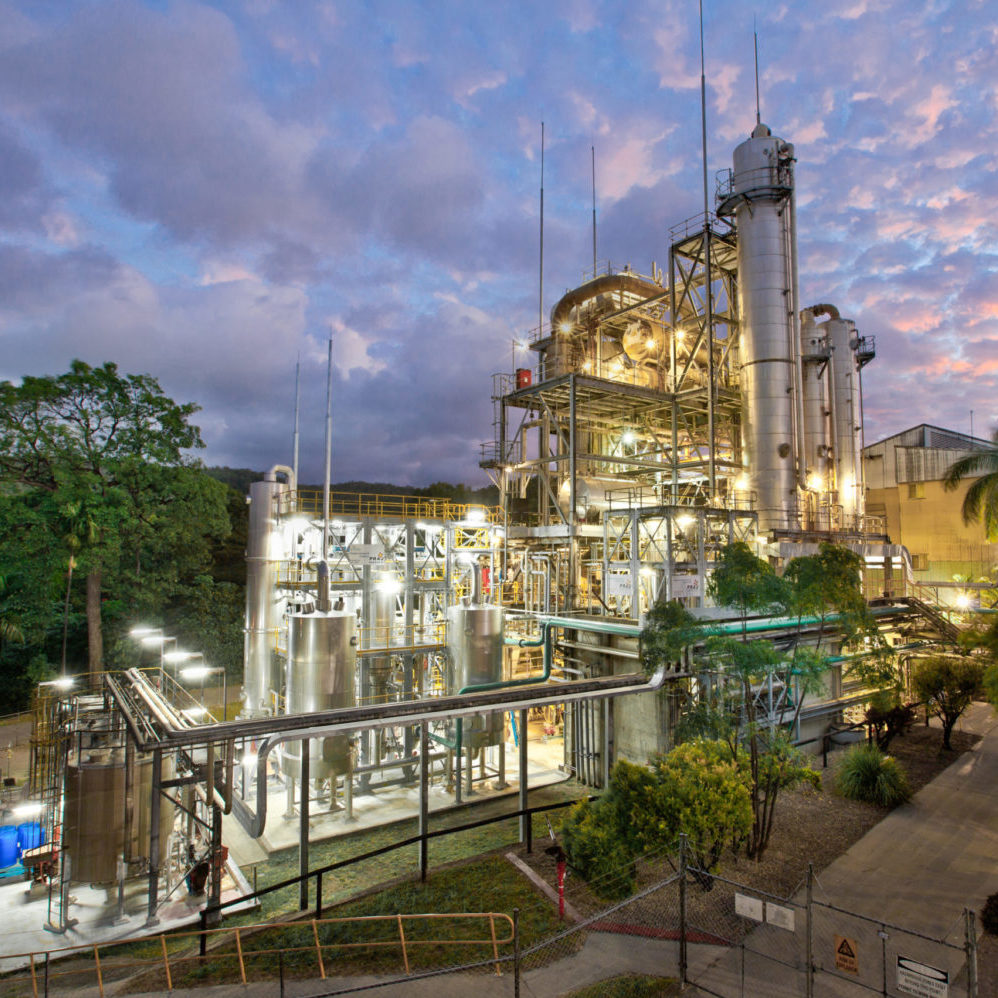Renewables
With the right investment and policies, sugar manufacturers can play a central role in guaranteeing Australians clean, affordable and reliable electricity and liquid fuels through the energy transition and beyond.
Australia’s sugar manufacturers are already significant producers of renewable electricity and renewable bio-fuels in the form of ethanol. This bio-energy can help decarbonise our economy. Opportunities now exist to fully explore and further invest in this potential.

Renewable electricity cogeneration
Sugar manufacturing has a successful track-record of providing renewable electricity through the cogeneration of electricity using our fibrous byproduct bagasse as fuel. With the right investment incentives, we have the potential to expand our installed capacity to approximately one gigawatt.
Preliminary modelling suggests that if potential investments in cogeneration are fully utilised, our sector could influence a reduction in wholesale electricity prices in Queensland by 10% from the base-case in the next 5-10 years. We need government to recognise the energy market benefits of sugar cogeneration and incentivise capacity expansion.
Synergies between Australian Defence capabilities and the sugar sector
Similarly, sugar and its byproducts have been identified as one of the main feedstocks for low carbon liquid fuels in Australia. While sustainable aviation fuel has garnered most of the media’s attention, the sugar industry is uniquely placed to secure Australia’s national security objectives, by providing an indigenous supply of biodiesel to our Defence capabilities that are geographically collocated (i.e. North Queensland). Bio-energy represents a diversification opportunity for the sugar industry, providing the industry with exposure to markets other than sugar, and in turn reducing the market risk for our businesses.
The importance of domestic feedstocks
Of course, a Future Made in Australia starts with feedstocks grown and processed in Australia. To ensure we have a truly indigenous low carbon liquid fuel capability in Australia, the Federal Government must invest in scoping the availability and accessibility of feedstocks for bioenergy, identify the highest economic value for the feedstock (food, fuel or fibre), map out enabling freight and supply chain infrastructure, and identify any policy regulatory enablers or challenges.
Australian Sugar Manufacturers' initiatives include:
- seeking a better operating environment for current and future co-generation and ethanol production
- increasing incentives for future additional co-generation and bio-fuels production
- seeking funding for feasibility assessments to increase co-generation capacity in the short term and evaluate sustainable aviation fuel production
- securing policies that address intermittent supply issues and incentivise low-emission, dispatchable supply when needed
- continuing to increase public understanding of the sector’s energy diversification potential.